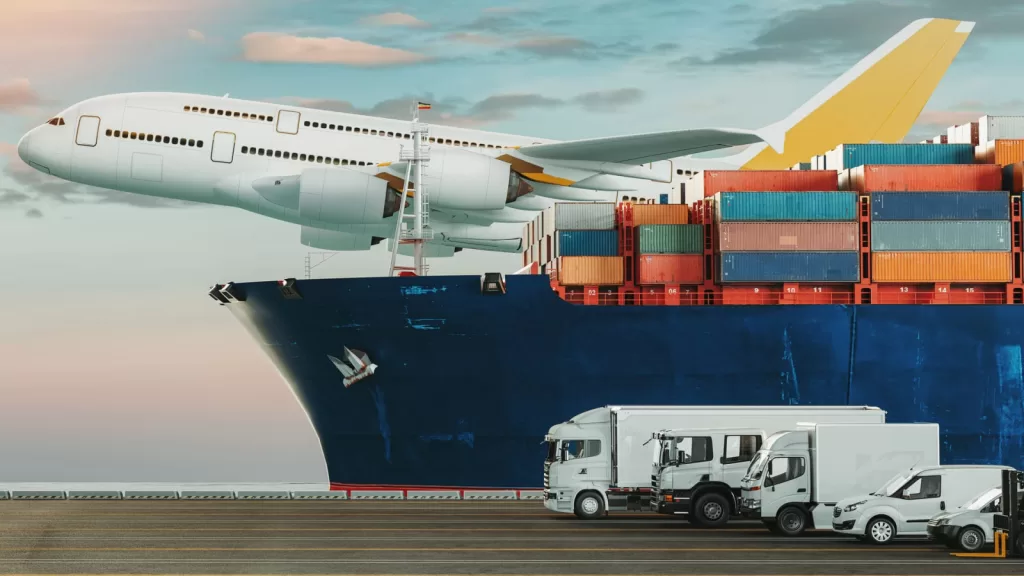Factors affecting the transportation time of Freight consolidation services
Efficient logistics management is essential for businesses that want to thrive in international trade. Freight consolidation services greatly optimize shipping costs and improve efficiency by combining multiple shipments into one container. However, various factors can affect the shipping time associated with these services. In this guide, we will explain some factors that affect the shipping time of freight consolidation services so that you can prepare in advance to avoid shipping delays.
What are freight consolidation services?
Freight consolidation involves combining multiple small shipments from different shippers into one large shipment. This process not only helps reduce shipping costs by maximizing the use of container space but also improves shipping efficiency. When multiple shipments are combined, they are collected, stored, and shipped to the final destination. The freight consolidation process begins with collecting individual shipments from different locations. These shipments are then temporarily stored at a consolidation point (usually a warehouse or distribution center), where they are sorted and prepared for onward transportation. Careful planning is essential to ensure the consolidated shipment meets all regulatory and documentation requirements for the final destination. This attention to detail helps minimize delays and potential complications during transportation.
Distance and Geographical Considerations
One of the most critical factors affecting the transit time of freight consolidation services is the distance between the origin and destination. Longer distances necessarily require more transit time, which can result in delays. Infrastructure availability, road conditions, and weather patterns also play a role in determining how quickly freight can be transported. Regarding geography, freight moving through remote or rural areas may encounter additional challenges, such as less developed roads or limited transportation options. Similarly, international freight may face longer transit times due to the need to clear customs and comply with different regulations in different countries. Therefore, timetables are established based on historical data on specific trade routes, allowing us to anticipate potential delays, better address challenges, and optimize logistics processes for greater efficiency.
Mode of transport affecting freight consolidation service transit time
The mode of transport selected for freight consolidation services can significantly affect transit time. Different modes of transport, such as air, sea, and road, have different speed and cost impacts. Air freight is the fastest option but is generally more expensive and suitable for urgent shipments. Conversely, sea freight is generally more economical but may take longer due to slower transit times and additional handling requirements.
Road transport is the middle ground between air and sea freight. It covers a range of options, including truck and rail transport, which is particularly effective for regional or domestic shipments. Road transport is relatively fast, usually has flexible scheduling, and delivers directly to warehouses or distribution centers. However, traffic conditions, road infrastructure, and distance can affect delivery time. Each mode of transport may involve different loading and unloading, customs clearance, and transfer procedures between modes of transport. These factors may cause changes in transit time.
Consolidation Process and Time
The efficiency of the consolidation process itself is another critical factor affecting the shipping time of freight consolidation services. This process involves multiple steps, including collecting, sorting, storing, and loading goods into containers. Delays at any stage can ripple effect on the entire shipping schedule. Timely cargo collection is essential to ensure that all cargo is collected and ready for shipment at the start of the consolidation process. If cargo is delayed at the collection point, it can set back the entire timeline, resulting in longer wait times for all consolidated cargo. Additionally, the sorting and loading process requires careful coordination and ensures the safe transportation of all items.
One of the most critical aspects of the consolidation process is communication. Effective communication between all parties involved is essential to ensure that the consolidation process is smooth and efficient. Additionally, unexpected weather conditions, port congestion, and regulatory changes can all impact the consolidation efficiency and the subsequent shipping schedule.
Seasonal Fluctuations and Demand Changes
During peak seasons, logistics providers typically experience a significant increase in freight volumes. This surge in demand can cause congestion at critical points in the supply chain, extending shipping times and potentially causing delays. During peak periods, many logistics facilities operate at or above their capacity, creating bottlenecks in the consolidation process. For example, increased cargo arriving at ports can result in longer unloading and customs clearance wait times. Additionally, the volume of freight that needs to be stored often exceeds the available space at warehouses, further increasing the complexity of logistics operations.
To effectively address these challenges, a comprehensive logistics strategy needs to be developed to account for the expected fluctuations in freight volumes. We can better predict peak seasons and adjust shipping plans by analyzing historical data and market trends.
Addressing Shipping Challenges with Freight Consolidation Services
Various factors can impact freight efficiency, from geographic considerations and shipping methods to consolidation processes and customs compliance. By proactively addressing these factors and leveraging technology, businesses can enhance their logistics strategies, reduce delays, and increase customer satisfaction. Working with an experienced logistics provider, planning for seasonal fluctuations, and maintaining clear communication channels can further strengthen supply chain operations. If you want to optimize your shipping processes or have questions about our freight consolidation services, please contact us.





